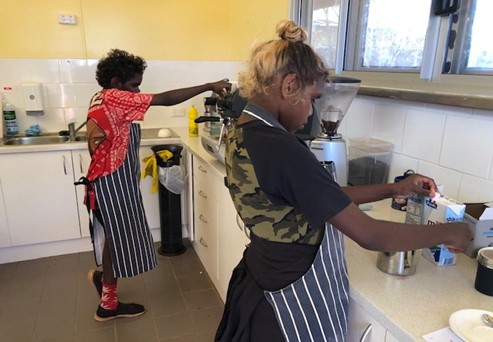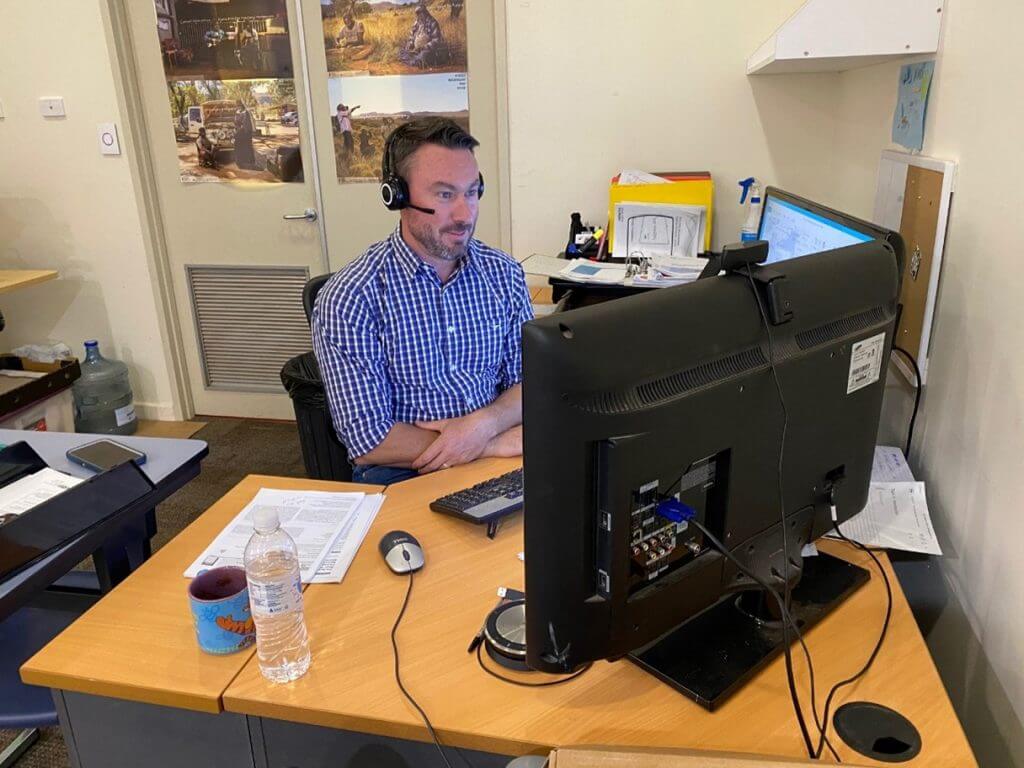Voyages Indigenous tourism upgrades to Connellan Airport and accommodation - Indigenous Outcomes Progress Report July 2020

COVID- 19 Impacts on Voyages Operations
COVID-19 has significantly impacted the Ayers Rock Resort, with the extremely difficult task of processing a number of redundancies and placing over 480 staff of stand down during the period.
Yulara’s inclusion in the MacDonnell Regional Council area biosecurity zone forced a re-assessment of our ability to deliver some regional Indigenous Engagement Programs. Voyages worked closely with community stakeholders, program partners, as well as Central Land Council and NT Department of Health COVID-19 permit processes, to design and implement any of these changes. As a result, Voyages were able to continue to deliver all programs remotely, and travel to some communities was still allowed with appropriate permissions and permits.
Engagement continued with key stakeholders in the NPY region, and staff adhered to all community led responses and initiatives designed to reduce the risk of COVID-19 in remote Aboriginal communities.
From March to June all scheduled intakes of NITA trainees were postponed, to be re-assessed in the future.
Remaining NITA trainees were supported by program staff to understand and adhere to all current measures, and responses, to avoid risks associated with COVID-19. All recruitment to Ayers Rock Resort was temporarily put on hold for the period.
IES Progress to July 2020
Since Voyages Indigenous Tourism Australia (Voyages) provided its IES Report to NAIF in December 2019, the construction phase for the Connellan Airport Upgrade has been completed. Voyages are in the ‘operational’ phase of the project for NAIF IES Reporting purposes.
Revisions to the IES are in progress to capture Voyages Indigenous Tourism Australia development of functional strategic Indigenous Engagement approaches across Anangu engagement, Education Pathways, Employment Pathways, Training and Economic Development. An updated Schedule of Obligations has been developed that factors in these changes, and will provide the ongoing basis for reporting to NAIF.
Voyages Ayers Rock Resort Education Pathways Program was redeveloped in 2020 to work closely with local and regional partners across the Ngaanyatjarra Pitjantjatjara Yankunytjatjara (NPY) lands and Central Australia regions, to support stronger education and career pathways opportunities for students.
The Education Pathways Program now offers creative, supportive and flexible education pathways approaches for students in each community – this can include anything from community-based skills development activities, accredited and non-accredited school-based training support, through to structured Ayers Rock Resort site visits and work experience programs.
As part of this work, Voyages now delivers an online hospitality skills development zoom class as part of our partnership with eight Ngaanjatjarra Schools in Western Australia. This work supports students to gain useful skills in hospitality, to help them grow in confidence and think about future career pathways at Ayers Rock Resort, in their own community and beyond.
Our Education Pathways Program partnership with Nyangatjatjara College and NT Department of Education delivers accredited Certificate I in Hospitality training to Nyangatjatjara College students in Kaltukatjara, Mutitjulu and Imanpa.
The partnership with Nyangatjatjara College is currently supporting 37 students to work towards achieving their Certificate I in Hospitality. There are currently sixteen upper secondary students enrolled in the Certificate I accredited training, and all other students participate in the school-based learning to grow in confidence, skills development and prepare for future accredited learning through the program.
Everything our Education Pathways Program delivers is designed in partnership with our community-based stakeholders, and is driven by community-based aspirations and needs. Our Education Pathways Program works to expose students to career opportunities at Ayers Rock Resort, while supporting students to learn skills that are linked to career pathways in their own communities.

The Voyages Ayers Rock Resort Education Pathways Program team loaded up their mobile coffee machine, so students in Kaltukatjara (Docker River) could set up a pop-up café in their community. People who live and work in Kaltukatjara were able to order off the pop-up café menu and enjoy hot espressos and hot chocolates made by the students. This practical activity saw students demonstrate their literacy and numeracy skills in developing the menu and taking customer’s orders, as well as demonstrate what they have learned in their use hygienic practices unit, barista skills training unit and provide customer service unit. All of these skills are also linked to the school’s curriculum.

Voyagers Coordinator Education and Employment Pathways Sam Henry delivering online hospitality training to eight Ngaanjatjarra Schools in Western Australia


